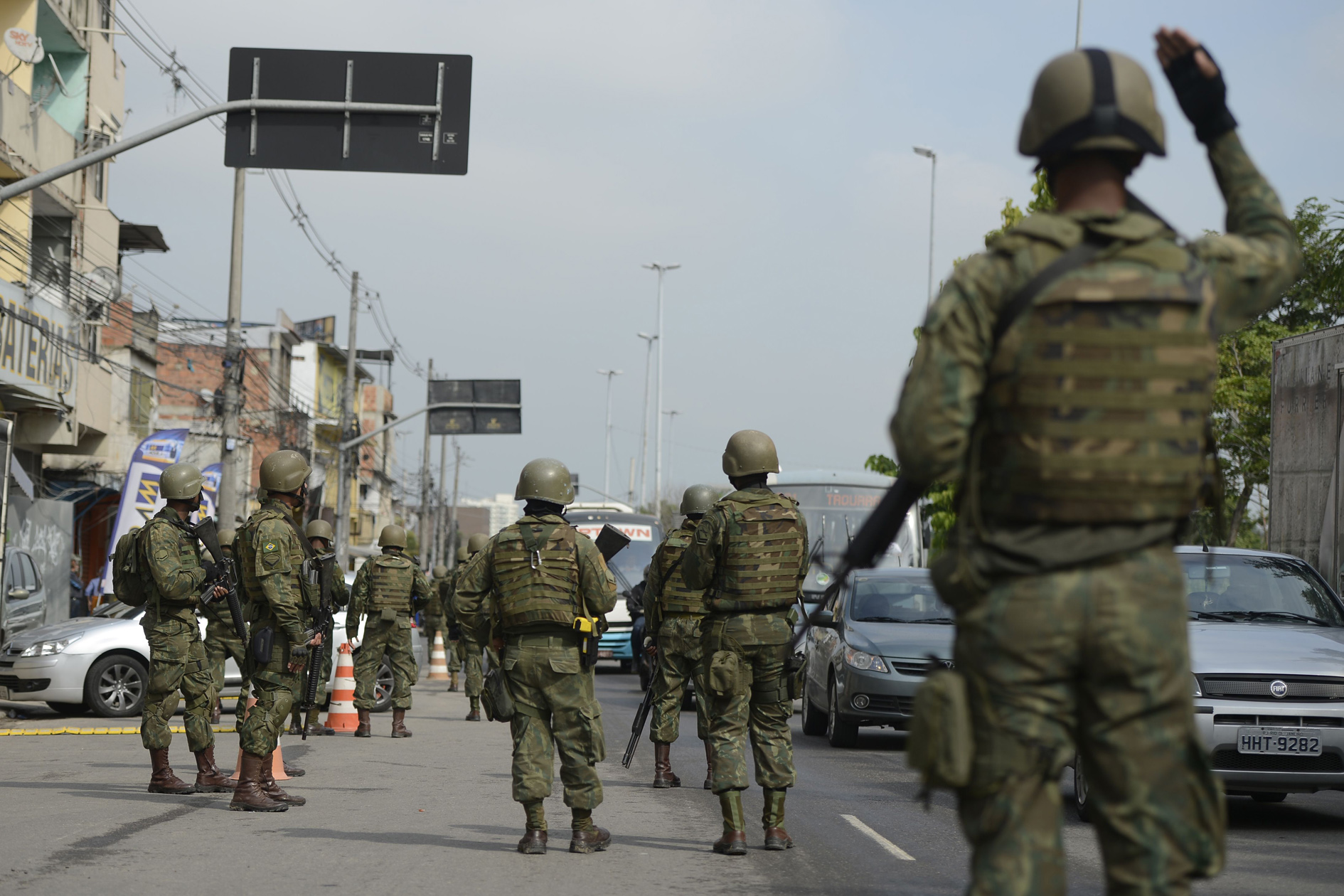Microgrants: Meet the reporters who are to investigate State violence
Journalists from Pernambuco, Amapá, São Paulo and Rio de Janeiro have been chosen to carry out their assignments
 Rio de Janeiro 07/06/2018 Armed Forces and police officers carry out an operation in the Gardania Azul community in the Jacarepagua region, west zone of Rio de Janeiro. Photo:Tomaz Silva/Ag Brasil
Rio de Janeiro 07/06/2018 Armed Forces and police officers carry out an operation in the Gardania Azul community in the Jacarepagua region, west zone of Rio de Janeiro. Photo:Tomaz Silva/Ag Brasil
In May Conectas and Agência Pública came together to organise the 8th edition of Microgrants, a project to award grants to independent reporters to bring about the assignments they have always wanted to investigate. In addition to the R$7 thousand grant, four reporters will receive mentoring at Pública to produce and publish their reports.
The proposal of this edition was to encourage reports on the causes and impacts of police violence and the federal intervention in public security in Brazil. Pública and Conectas chose four assignments out of the 55 who enrolled in the project, with a view to contributing to this debate and to coverage of these themes.
The originality and relevance of the assignments, the safety and viability of the investigation, consistency in pre-checking, reporting experience and journalistic resources and methods to be used were all evaluated. Reporters were selected from São Paulo, Rio de Janeiro, Pernambuco and Amapá. They are to investigate the impact of police violence and military intervention in different parts of Brazil.
See Pública and Conectas sites to read the reports.
Find out more about the winners:
Julianne Gouveia: is a journalist and photographer. She specialised in Cultural Journalism at UERJ. She has been working in the areas of culture, education and human rights since 2009, in conjunction with non-governmental organisations, social movements and cultural initiatives such as Central Única das Favelas – Cufa and Cinemateca at MAM (Museum of Modern Art). She was a reporter on the magazines Vizoo and B4 (Vizoo Editora). She worked as an Editor at the Agência de Notícias das Favelas (Favela News Agency) and at Jornal A Voz da Favela (The Voice of the Favela Newspaper) between 2016 and 2018. In 2017, she was a Tutor /Instructor to students at the UFRJ School of Communication and the Sesc High School in the Popular Communication department. Since 2012 she has been a communications officer at the NGO Spectaculu – School of Art and Technology.
Abinoan Santiago and Denise Muniz: Abinoan Santiago was born in Amapá. He has worked in journalism since he was 17 years old. He has experience working on the World Cup, behind the scenes at the Court of Justice, at the Legislative Assembly and executive power. He was an Editor/Reporter on politics, legal affairs and investigative journalism at the G1 bureau in Amapá. He has freelanced for newspapers in Brazil and for France-Guyana in French Guiana. In 2017 he won the Expocom Prize for the best journalistic book, with “Inquérito 681 – Operação Mãos Limpas: os bastidores da investigação que mudou o cenário político do Amapá” (Enquiry 681, Operation Clean hands: behind the scenes of the investigation that changed the political arena of Amapá) to be published.
Denise Muniz has been a journalist for 13 years. She has experience in reporting, investigative reporting, journalism, revision, editing and communications consultancy. She has worked on the main local newspapers, Diário do Amapá, A Gazeta, Tribuna Amapaense e G! Amapá.
Matheus Moreira and Thiago Picolo: Matheus Moreira graduated in journalism at the Cásper Líbero University. He has worked in journalism for two years. He worked as a reporter at Revista Fórum, Nexo Jornal, UOL TAB, Ponte Jornalismo and Brasileiros Magazine and covered COP23 in Bonn, Germany.
Thiago Picolo graduated in Psychology at PUC-Campinas. He graduated in Scientific Psychoanalysis, Sport Psychology and specialised in Jungian Analytical Psychology at UNICAMP. He is currently studying journalism at the Cásper Líbero University. He has interned as a press officer at the Agência Loures Comunicações, at TV Record and also covered COP23 in Bonn, Germany.
Luane Ferraz de Souza, Coletivo Retruco: Luane Ferraz de Souza, Bruno Vinicius, Camila Queiroz, Gabriella Leal, Juliana Aguiar and Thiago Santos make up Retruco, an audio-visual collective of young journalists, filmmakers and designers from Recife. The group came together through working in large local media such as Diário de Pernambuco, Jornal do Commercio, public service radios, WebTVS, as well as projects such as GloboLab/Profissão Repórter. The group was born out of the desire to make independent audio-visual productions focused on ensuring human rights and citizenship through their assignments.


